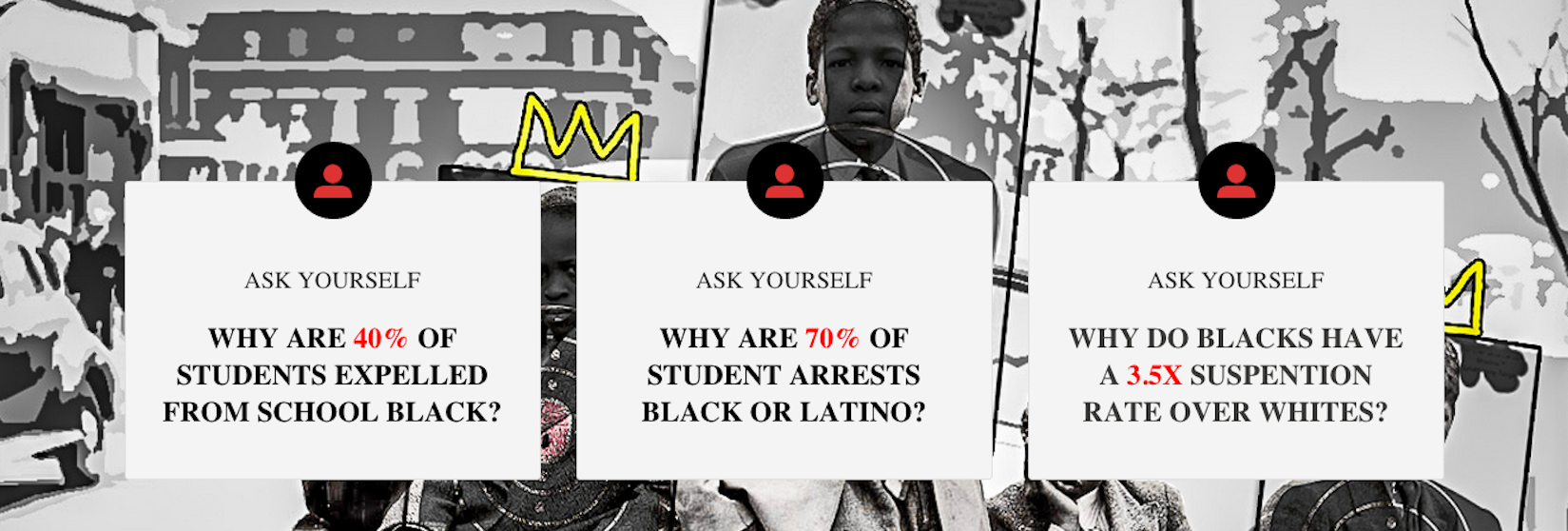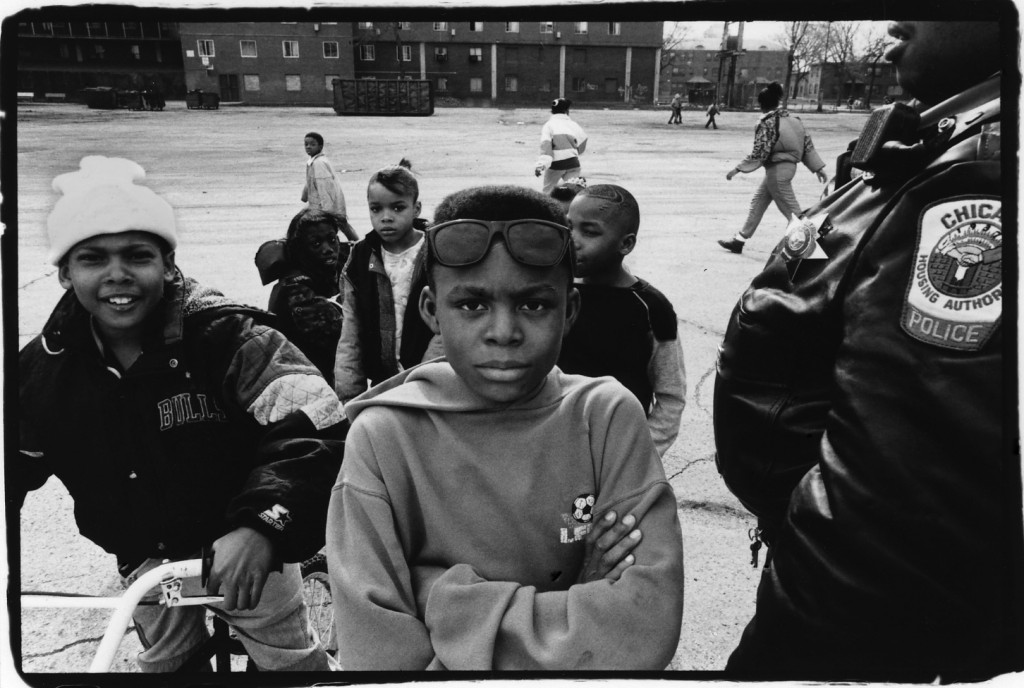The justice system is designed to trivialize the struggle of black youths, while simultaneously criminalizing them.1 The aim of this website is to raise awareness about the SCHOOL-TO-PRISON PIPELINE and the surrounding activism that serves to disrupt it, both in Chicago and beyond…
WHAT IS THE SCHOOL-TO-PRISON PIPELINE?
The “school-to-prison” pipeline refers to the channeling of youth out of public schools and into juvenile and criminal justice systems. This negative trend has led to the trading of backpacks for prison jumpsuits and is a product of harsh school disciplinary policies and the hyper-policing of black youth. The racialized pipeline disproportionately effects black youth, removing them from the classroom as punishment, eliciting their stigmatization, constraining their educational outcomes and preventing their upward social mobility. The pipeline supports the unjust, bureaucratic system that “prioritizes the incarceration of black youth over their education.”1 It is not a surprise that the weight of punishment falls unfairly on the backs of black youth, as schools are reflections of an unequal, segregated society.

1
Perpetuation of the Pipeline
Black students are not distinctively misbehaved, but are rather victims of an oppressive educational system that is quick to enact disciplinary policies. The behavioral issues of youth have led to their policing, surveillance and incarceration: all of which, directly contribute to the school to prison pipeline. Students of today are being arrested for minor behavioral issues and thus, childhood behavior has become criminalized. Zero tolerance policies are of the most inequitable educational practices that contribute to the perpetuation of the school to prison pipeline.
Zero Tolerance Policies revoke a student’s academic potential regardless of their circumstance. Adopted by 94% of U.S. public schools,zero tolerance policies prescribe predetermined, punitive consequences, such as school suspension or expulsion on the first offense for a variety of minor disciplinary issues (fighting, truancy, tardiness, drug possession).2 Zero tolerance policies victimize black youth, suspending them nearly 4X more often than their white classmates.2

1
Once, suspended, the students are more likely to be expelled, sent to incarceration facilities, which heightens their chances for school drop out and adult imprisonment.2 Race is a distinct determinant of one’s likelihood of being suspended or expelled.3 Ultimately, when students receive harsh punishment for minor, childish behaviors, they are pushed out of schools and their educational outcomes decline greatly.4
WHY CHICAGO?
The criminalization of youth is increasingly problematic in Chicago. As a whole, Illinois students will lose more than “one million days of school” each year due to suspensions, expulsions and school-based arrests.5 Specifically, in 2012-2013 the students of Chicago Public Schools lost more than 173,000 instructional days, averaging ” 386 out-of-school suspensions per day.”5 More alarming or maybe not alarming at all, is the fact that while African American youth comprise 41% of the Chicago Public School demographic, the comprise 75% of those suspended.5 Additionally, black students are 30X more likely than white students to be expelled out of Chicago Public Schools.4

7
The life chances of urban black youth in Chicago are severely reduced by the racialized policies that hinder educational attainment. In addition, Chicago Public Schools have transformed from educational sites to criminal justice systems, or rather criminal injustice systems. Chicago Public Schools are increasingly more likely to call the police to deal with minor behavioral issues in comparison to public schools in both Los Angeles and New York City.6 In 2012, black students comprised 76% of the 4287 students who were arrested at school. Furthermore, in 2010 alone, Chicago Public Schools spent 51.4 million on school-based police, the same police that play a critical, widely recognized role in the pipeline.5 These police may attempted to keep schools safe, but in fact when schools have law enforcement on site, students are more likely to get arrested by police instead of having discipline taken care of by school administration.4 The policed schools in Chicago are gateways to criminalization.
WHY IS IT IMPORTANT?
The life chances of youth who are criminalized, arrested and incarcerated are severally hindered. Those who are incarcerated in a juvenile detention facility encounter a much higher likelihood of being unable to escape prison, being incarcerated as adults. A child’s future is revoked when their minor misbehavior is treated as a crime.